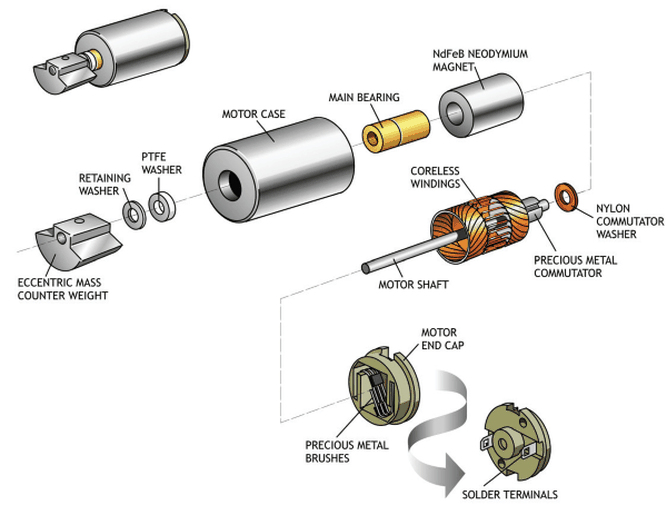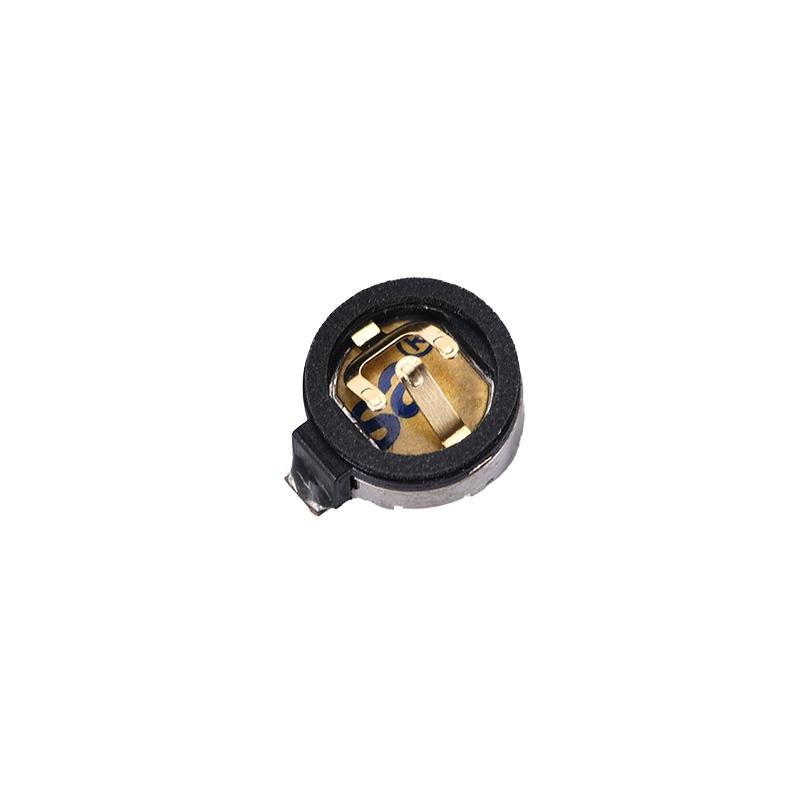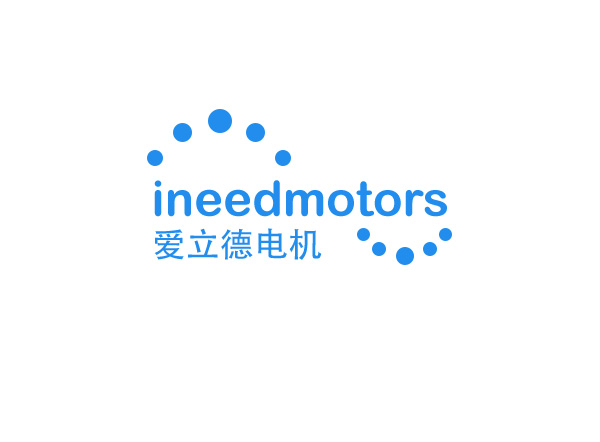3V Motors: Applications, Specifications, and Selection Guide for ERM Vibration Systems
A 3v motor is a compact device that converts electrical energy into mechanical motion. It plays a vital role in ERM vibration systems by generating precise vibrations for haptic feedback. Choosing the right motor ensures optimal performance and reliability. INEED specializes in delivering high-quality vibration motors tailored to meet diverse application needs.
Key Takeaways
3V motors are important for gadgets like phones and medical devices. They give good vibrations and improve how users feel using them.
When picking a 3V motor, think about how fast, accurate, and strong it needs to be to work well for your device.
INEED makes 3V motors you can customize for different uses. They work great and are dependable for what you need.
Applications of 3V Motors
Consumer Electronics and Wearables
You encounter 3v motors in many consumer electronics and wearable devices. These motors power haptic feedback in smartphones, fitness trackers, and smartwatches. Their compact size and energy efficiency make them ideal for small devices. A market report highlights the growing adoption of 3v motors in camera systems due to their cost-saving benefits. Manufacturers benefit from reduced production costs, while users enjoy extended battery life. This combination of affordability and performance drives their popularity in consumer electronics.
Medical Devices and Healthcare Applications
In healthcare, 3v motors play a crucial role in enhancing patient care. Devices like insulin pumps, portable diagnostic tools, and massagers rely on these motors for precise vibration. Their reliability ensures consistent performance, which is vital in medical applications. You can trust these motors to deliver accurate feedback, improving the functionality of healthcare devices.
Industrial Tools and Robotics
Industrial tools and robotics often require compact and efficient motors. 3v motors meet these demands by providing consistent torque and speed. They are used in robotic arms, automated systems, and handheld tools. Their durability allows them to withstand rigorous use, making them a reliable choice for industrial applications.
Telecommunications and Beauty Products
Telecommunication devices, such as pagers and mobile phones, use 3v motors for vibration alerts. In beauty products, these motors enhance user experience by powering facial massagers and electric toothbrushes. Their small size and low power consumption make them suitable for these compact devices.
Other Niche Applications
Beyond mainstream uses, 3v motors find applications in toys, gaming controllers, and educational kits. Their versatility allows them to adapt to various needs, making them a valuable component in innovative designs.
Key Specifications of 3V Motors
Voltage and Current Ratings
Understanding the voltage and current ratings of a 3v motor is essential for ensuring compatibility with your device. These motors typically operate at a rated voltage of 3V DC, with a starting voltage of around 2.3V. Current ratings vary depending on the motor type and application. For example:
Motor Type | Supply Voltage | Maximum Current | Rated Speed | G Force/Vibration Energy |
|---|---|---|---|---|
Vibration ERM Motor 9K RPM | 3VDC | 85mA | 9000RPM | 0.80GRMS |
Vibration ERM Motor 10K RPM | 3VDC | 100mA | 10000RPM | 0.91GRMS |
These specifications highlight the balance between power consumption and performance, making 3v motors ideal for compact devices.
Torque and Speed Characteristics
Torque and speed are critical for determining a motor's performance. A 3v motor offers consistent torque and speed, ensuring smooth operation in various applications. Comparative studies reveal how torque-speed characteristics vary under different conditions. For instance:
Figure | Description |
|---|---|
Fig. 7 | Torque-speed characteristics using experiment parameters and simulation parameters for Motors M1 and M2 |
Fig. 8 | Torque (Nm), Input current (A) against rotor speed (rpm) for Motors M1 and M2 |
These insights help you select a motor that meets your performance needs.
Size, Weight, and Compact Design
The compact design of a 3v motor makes it suitable for space-constrained applications. Typical specifications include:
Specification | Value |
|---|---|
Diameter (mm) | 10.0 |
Thickness (mm) | 2.7 |
3.0 | |
Rated Current MAX (mA) | 85 |
Typical Current (mA) | 55 |
Rated Speed (RPM) | 9000 |
Vibration Force (G) | 0.80 |
This small size allows for seamless integration into devices like wearables and medical tools.
Efficiency and Power Consumption
Efficiency plays a vital role in extending battery life. The 3v motor segment dominates the market for mobile phone camera motors due to its ability to enhance efficiency and reduce power consumption. This ensures longer operational times, especially in portable devices.
Durability and Lifespan
Durability ensures reliable performance over time. Factors like torque de-rating and thermal management significantly impact a motor's lifespan. For example:
Factor | Impact on Durability |
|---|---|
Torque De-Rating | Prevents overheating, reduces thermal stress, and enhances reliability, thus prolonging motor lifespan. |
Thermal Management | Essential for preventing insulation breakdown and catastrophic failures, ensuring reliable performance. |
Operational Conditions | Unbalanced voltage and high temperatures can lead to mechanical and thermal issues, affecting longevity. |
Effective design and testing under harsh conditions ensure these motors perform consistently over their lifespan.
How to Select the Right 3V Motor for ERM Vibration Systems
Define Performance Requirements
Start by identifying the specific needs of your application. Focus on key factors like speed, precision, and torque. For example:
Speed: Determine the required RPM for your device.
Precision: Assess how accurately the motor must perform.
Torque: Ensure the motor can handle the load without compromising efficiency.
Additionally, consider environmental conditions such as temperature, humidity, and exposure to dust or chemicals. Compatibility with your power supply is also critical. A motor designed for 3V DC ensures optimal performance and prevents inefficiency or damage.
Evaluate Compatibility with ERM Systems
Ensure the motor integrates seamlessly with your ERM vibration system. Check the voltage and current ratings to avoid mismatches. Confirm that the motor's vibration force aligns with your application's requirements. For example, a 3v motor with a vibration force of 0.80G is ideal for compact devices like wearables.
Consider Environmental and Operational Factors
Environmental resilience is crucial for reliable performance. Motors must withstand voltage unbalance, harmonic distortions, and temperature variations. The table below highlights key factors:
Factor | Impact on Performance |
|---|---|
Voltage Unbalance | Reduces torque output, leading to performance degradation. |
Temperature Variations | Excessive heat can cause overheating and failure. |
Harmonic Distortions | Affects efficiency and reliability, requiring careful monitoring. |
Prolonged use simulations in harsh conditions ensure the motor's durability over time.
Assess Budget and Cost-Effectiveness
Evaluate the motor's cost-effectiveness by analyzing its total cost of ownership (TCO). A 3v motor offers energy efficiency, reducing operational costs. The table below provides insights:
Aspect | Insight |
|---|---|
Cost Savings | Reduces manufacturing and consumer costs. |
Energy Efficiency | Lowers operational expenses through efficient energy use. |
Total Cost of Ownership | Extends battery life, reducing long-term expenses. |
Test and Validate the Motor
Testing ensures the motor meets your performance standards. Use methodologies like core loss characterization to measure energy efficiency. Thermal behavior mapping helps refine cooling designs, while mechanical integrity testing assesses durability under real-world stresses. These protocols guarantee the motor's reliability and suitability for your application.
INEED's Vibration Motor Solutions
Overview of INEED's Vibration Motor Technologies

INEED offers a comprehensive range of vibration motor technologies designed to meet diverse application needs. These motors convert electrical energy into mechanical vibrations, providing reliable haptic feedback across various industries. The product lineup includes coin vibration motors, brushless coin motors, linear resonant actuators (LRAs), and coreless DC motors. Each type serves specific purposes, ensuring you find the right solution for your device.
Coin Vibration Motors: Compact and ideal for wearables and mobile devices.
Brushless Coin Motors: Long-lasting and efficient, suitable for high-performance applications.
LRAs: Deliver precise and fast tactile feedback.
Coreless DC Motors: Lightweight and efficient, perfect for portable tools.
These technologies cater to industries like telecommunications, healthcare, and robotics, ensuring optimal performance and reliability.
Features and Benefits of INEED's Coin Vibration Motors

INEED's coin vibration motors stand out for their compact size and ease of integration. With diameters ranging from 7mm to 12mm, these motors fit seamlessly into space-constrained devices. They operate at a rated voltage of 3V DC and achieve speeds up to 10,000 RPM, delivering consistent vibration feedback.
Key benefits include:
Compact Design: Ideal for small devices like fitness trackers and medical tools.
Energy Efficiency: Extends battery life in portable electronics.
Durability: Designed for long-term use, even in demanding environments.
Customizability: Tailored to meet specific application requirements.
These features make coin vibration motors a reliable choice for enhancing user experience in compact devices.
Customization Options for Specific Applications
INEED provides extensive customization options to ensure its motors meet your unique needs. From adjusting vibration intensity to modifying lead wire lengths, you can tailor the motor to your application. The table below highlights some real-world customization examples:
Case Study Title | Description |
|---|---|
Automated Vendor Bill Generation | Simplifies invoice creation using CSV files. |
Predicting Future Inventory Requirements | Enhances order accuracy with inventory forecasting. |
Customizing Business Promotional Campaigns | Boosts online sales through tailored campaigns. |
Single-Click Printing of Multiple Item Fulfillments | Streamlines printing processes for efficiency. |
These examples demonstrate how INEED's customization capabilities can optimize your device's performance and functionality.
Why Choose INEED for Your 3V Motor Needs
INEED's 3v motor solutions offer unmatched efficiency and compactness. These motors consume less power, extending battery life in portable devices. Their small size enables the development of thinner and lighter products, meeting the demands of modern mobile phone manufacturers.
Key Findings | Description |
|---|---|
Efficiency | Reduces power consumption, enhancing battery life. |
Compactness | Enables smaller, lighter designs for mobile devices. |
Market Demand | High demand due to efficiency and compactness, crucial for modern devices. |
Choosing INEED ensures you receive high-quality, customizable motors backed by over a decade of expertise. With a focus on innovation and customer satisfaction, INEED delivers solutions that enhance your product's performance and reliability.
Understanding the applications, specifications, and selection criteria of 3V motors ensures you select the best option for your device. INEED's vibration motors, including coin vibration motors, deliver reliable and efficient solutions tailored to diverse industries.
Explore INEED's customizable options to optimize your product's performance. Visit INEED Motors to find the perfect motor for your needs.
FAQ
What is the lifespan of a 3V vibration motor?
A 3V vibration motor typically lasts for 864,000 cycles, equivalent to 72 hours of continuous operation under standard conditions.
Can you customize a 3V motor for specific applications?
Yes, INEED offers extensive customization options, including vibration intensity, lead wire lengths, and mounting methods, to meet your unique application requirements.
How do you test the reliability of a 3V motor?
INEED conducts rigorous tests, including thermal behavior mapping and mechanical integrity assessments, to ensure the motor performs reliably under real-world conditions.
💡 Tip: Always consult with INEED's technical team to select the best motor for your application. Visit INEED Motors for expert guidance.
See Also
Understanding How Vibration Motors Are Used Across Industries
LRA Vibration Motors: Key Elements Behind Haptic Feedback Technology
An Overview of Top Instruments for Measuring Vibrations
Evaluating Linear Resonant Actuators: Finding the Right Fit
Haptic Feedback Innovations: Uses, Advantages, and Future Trends
Get Custom Micro DC Motors from
INEED Motors!
Leading Brand in Vibration Motor Manufacturing Industry
